Florida Condo Insurance
8:30am - 5:00pm Mon-Fri
Will Reply in 15min*
Index
Contact Us
Phone
Location
6900 Tavistock Lakes Blvd, Suite 400, Orlando FL 32827
Being a coastal state, Florida is a high-risk area for hurricanes, floods, and other forms of natural disasters. This means investing in condo insurance is especially important if you own a condo in Florida. When such disasters happen, they leave homeowners with massive amounts of damage and can cost thousands of dollars to repair.
Having the right Florida condo insurance policy (also known as HO6 or condominium insurance) in place will help protect your home from unexpected costs.
It’s important to know that Florida condo insurance policies differ in coverage and cost depending on the type of property, its age, and other factors. In order to ensure you get the best policy for your condo, it’s important to research different options and compare quotes.
What is Condo Insurance?
Condo insurance is a type of homeowners insurance specifically for condominium owners. This type of policy covers the inside of your unit and any personal belongings, providing protection in case of theft, damage, or liability claims due to accidents.
It also covers additional living expenses if you have to relocate temporarily while your condo is being repaired after a
natural disaster. Depending on your agreement with your insurance provider; condo insurance may also offer liability coverage.
What Does Condo Insurance Cover in Florida?
Usually, a condo insurance policy will only cover damage caused by specific events listed in the policy. For example, if there is water damage, the insurance company will only pay for it if it was caused by an event listed in the policy, such as a broken appliance.
However, if the damage is caused by an event that is not listed in the policy, such as a severe storm, the insurance company will not cover it unless the policyholder can provide evidence that the damage was caused by a covered event, such as damage to the roof caused by the storm. With that in mind, Florida condo insurance covers the following perils:
- Falling objects
- Fire and explosion
- Lightning
- Smoke
- Snow and ice
- Vandalism and theft
- Third-party vehicles
- Volcanic eruption
- Water damage as a result of burst and frozen pipes, appliances, or sprinklers
- Windstorm
What Are Florida Condo Insurance Exclusions?
The following are some common exclusions and scenarios not covered by Florida condo insurance policies:
- Damage to any part of the structure that’s outside of your unit (including balconies, walls, and roofs)
- Maintenance or repair costs for faulty plumbing, wiring, or other infrastructure components
- Flood damage
- Damage caused by earthquakes or landslides
- Damage or losses caused by pests (such as termites)
- Damage to vehicles parked in your condo’s parking lot
- Loss of rent if you decide to rent out your unit
- Alterations or additions not included in the original plans and specifications of the condominium complex
- Cracking of ceilings, pavements, walls, and roofs
- Vandalism in the event you leave the condominium unoccupied for 30-60 days
What Types of Insurance Coverages Do I Need for a Condo in Florida?
There are various coverages of condo insurance in Florida. The kind of coverage that you pick depends on your coverage needs. Here are some of the common coverages to consider:
a) Dwelling coverage: Dwelling coverage is one of the core coverages that come with a Florida condo insurance policy. It covers the inside of your unit and any belongings like furniture, clothing, electronics, etc., in case of theft, damage, or liability claims due to accidents. It also helps cover additional living expenses if you have to relocate temporarily while your condo is being repaired after a natural disaster.
b) Personal property: Personal property coverage is another important part of condo insurance in Florida. This coverage protects your belongings from theft, damage, or loss and can also help cover costs related to replacing them if necessary. It covers the cost of repairing or replacing items like furniture, clothing, electronics, and more up to the limits specified in your policy. It can also cover the cost of replacing valuable items like jewelry.
c) Loss assessment: Loss assessment coverage is another important part of Florida condo insurance. This type of coverage helps protect you from the cost associated with assessments levied by a homeowners’ association or condominium complex. These assessments are typically used to cover damages that exceed the amount covered by your condo insurance policy, such as structural damage and repairs to common areas. Loss assessment coverage can help cover these costs up to the limits set by your policy.
d) Personal liability: Liability coverage is an important part of condo insurance policies in Florida. This type of coverage helps protect you from liability claims and lawsuits due to accidents inside or outside your unit. It can also cover costs related to medical bills and legal fees up to the limits set by your policy. It can also help provide financial protection if you are held liable for property damage or injuries caused by others at your condo.
e) Loss of use: Loss of use coverage is another important part of a Florida condo insurance policy. This type of coverage helps cover additional living expenses if you have to relocate temporarily while your unit is being repaired after a natural disaster. This type of coverage can provide much-needed financial relief during a difficult time.
Florida condo insurance policies are designed to help protect you and your belongings from unexpected damages or losses. By understanding the different types of coverage available, you can ensure you have the right amount of protection for your specific needs.
What to Do If You Have a Claim with Your Condo Insurance Policy in Florida
To file an insurance claim with your Florida condo insurance policy, you will need to follow the following steps:
a) Contact your insurer: Contact your insurer as soon as possible to inform them of the incident. You should also provide any relevant information, such as names, dates, and details of the incident.
b) Mitigate the damage: If possible, take steps to mitigate the damage and prevent further losses. This can include boarding up any broken windows or covering damaged areas with a tarp. However, don't perform any repairs until you have the approval of your insurer.
c) Gather documentation: Gather relevant documentation such as photos, receipts, invoices, and more to support your claim. This will help speed up the process and ensure you receive the compensation you are entitled to.
d) File a claim: Submit your claim to your insurer for review. The adjuster assigned to your claim will investigate the incident and provide you with a settlement offer. Be sure to review it carefully before accepting, as it should cover all your losses related to the incident.
By understanding the steps necessary to file a claim with your Florida condo insurance policy, you can help ensure that you get the compensation you deserve. It's important to remember to keep detailed records and contact your insurer as soon as possible in order to give yourself the best chance of a successful claim.
What is the Average Cost of Condo Insurance in Florida?
The cost of condo insurance in Florida varies based on a number of factors which include;
- The coverage amount: The amount of coverage you choose for your policy will have a major impact on the cost. The higher the limits, the more expensive the policy will be.
- Your deductible: Your deductible is the amount that you agree to pay out-of-pocket toward any claim. A higher deductible can help reduce your premiums, while a lower deductible will make your policy more expensive.
- Your claims history: Insurance companies use your claims history to determine the cost of a condo insurance policy. If you have had multiple claims within the past five years, it may result in higher premiums.
- The size of your condo: The size of your condo unit will also affect the cost of your policy. Larger units may require more coverage, which can increase the cost.
- Location: The location of your condo also plays a role in determining the cost. If you live in an area prone to flooding or hurricanes, it may be more expensive to insure.
On average, a Florida condo insurance policy costs between $20 and $50 per month. However, it's important to compare quotes from different insurers to find the best rate for you specifically.
Have Questions? Let Us Help
Bellken Insurance Group is an experienced provider of Florida condo insurance and is here to answer any questions you may have. Whether you are just starting the process of purchasing a policy or need help filing a claim, our knowledgeable agents can provide you with the assistance you need. We can also offer advice on how to reduce your premiums and make sure that you get the best rate for your coverage.
We understand that everyone's needs are different and are here to provide you with personalized advice on determining the right amount of insurance coverage and ensuring you get the best value for your money. Our team is committed to providing excellent customer service, so don't hesitate to reach out if you have any questions or concerns about condo insurance in Florida.
Contact us today to learn more and receive a free quote!








